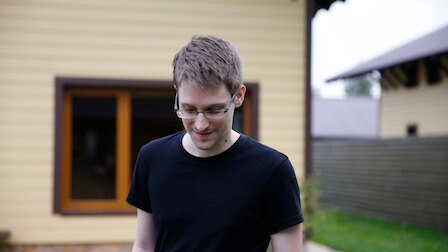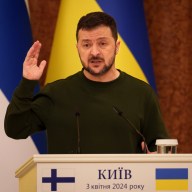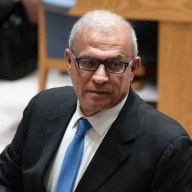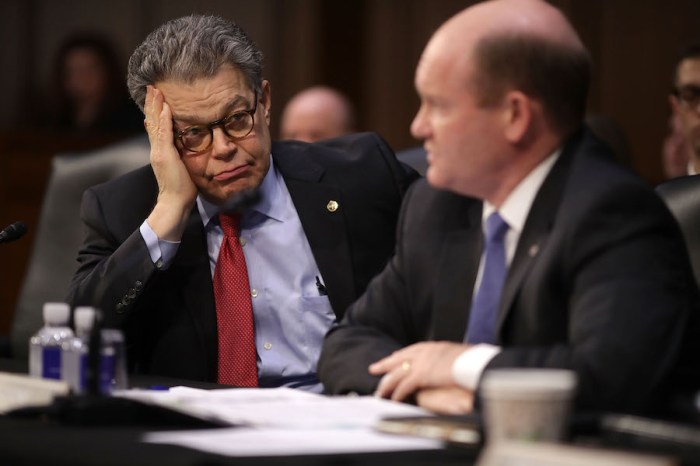‘Citizenfour’
One day there will be a comprehensive, retrospective documentary about Edward Snowden and his leaking of sensitive, explosive, damning government intel. (It will almost certainly be directed by Alex Gibney.) The new “Citizenfour” is not that doc. It’s something that’s more useful: A film that adds a valuable, essential piece to the dialogue about his actions, whether they were ethical and what this means for our future. It doesn’t tell his story; it shows it. Director Laura Poitras was the first journalist (or, in her case, documentarian) on board with Snowden, even before Glenn Greenwald, when he reached out for help leaking his documents. Among her contributions was filming him in the Hong Kong hotel room from which he first made his information, and himself, known to the world. This week eats up the middle hour of “Citizenfour,” and it’s as vital and thrilling a piece of big time fly-on-the-wall cinemas as Robert Drew’s “Primary” (which hung with JFK’s presidential campaign) or the Maysles brothers’ “Gimme Shelter” (which was there to capture murder at Altamont). In some ways it’s even more electric: “Citizenfour” is the first real moving image portrait of Snowden, the one that humanizes him by spending valuable time in his company. Poitras filmed the 12-minute Snowden introduction that went online once he outed himself as a whistleblower (a video briefly shown being made here). In essence we’re seeing him for the first time, and noticing what no printed article can capture: His affable, near-bewildering good humor and eloquence — particularly shocking given that the film captures him as he’s essentially destroying his life Most viewers aren’t the only ones really getting to know Snowden. It was also Poitras and Greenwald (plus the latter’s then-Guardian colleague Ewen MacAskill) who were meeting him for the first time. Snowden had been in contact with them for months prior, but they still had to be convinced, for the last time, to aid in what he was doing. Snowden has to convince them of many things, starting with his motives. He makes his case: He has proof of warrantless spying, and can’t live with knowing this and not doing something to stop it. He also has to explain why he wants to take the blame. He has a noble answer: If he doesn’t come forward, innocent lives could be destroyed during a prolonged investigation. Snowden is scarily laidback about this, though he clearly made his mind up long before this meet-up. He nervously giggles —a real “f— it” giggle — once the intel is out, knowing the blowback will be bad but not sure to what degree, and pretty jazzed at how much the future he’s creating is unknown. Is “Citizenfour” more than topical — more an important film than a “good” one? Does it matter? It doesn’t really, especially during its middle section, which offers one of cinema’s most pleasurable offerings: smart people in rooms smartly hashing things out. (Along with being scarily friendly, Snowden is scarily articulate.) It’s notable that Poitras’ film is intentionally rough, even old school. It’s not slick. It barely features state-of-the-art flashy, digital editing. Even when it’s nothing more than a camera in a room, filming people, it’s still low-tech, with images of covert communications over MS-DOS-level screens. It plainly moves from archival footage to footage Poitras shot herself, all of it unadorned, not tattooed with flashy editing tricks or an insistent score telling us what to think. Content and video equipment aside, it almost could have been made in the 1970s. But what of the first and last half hours? Poitras is a cinema verite/direct cinema director, in that her films (“My Country, My Country,” “The Oath,” both about life during the Iraq War) observe rather than commentate. She’s less assured when it comes to turning expository. She mostly equips herself during the first half hour, which teasingly builds from the very beginnings of her dealings with Snowden over encrypted email, when he was nothing to her but a potentially crazy username teasing about owning top secret documents. If you didn’t know this was a film about Snowden or didn’t even know who Snowden was, you’d likely be suitably gripped. He’s almost treated like Harry Lime:someone whose name you hear, who then suddenly materializes —and he’s just some 29-year-old tech geek in disheveled wear, sitting on a messy bed. The last third is a problem, if not a deal-breaker. Once Snowden effectively exits the picture —heading off for what would be a lengthy stint inside a Moscow airport —the film becomes a tad underorganized. Poitras stutters through the aftermath; some of the footage she dwells on can drag, some of the information proves confusing to the layman. It’s clear mere reportage isn’t her bag, that while she’s great at capturing people in rooms, she’s not yet skilled at piecing together other people’s footage to tell a story. What’s more, its need to stay semi-objective — Poitras clearly agrees with Snowden’s actions, though she keeps herself and her opinions as far away from the film itself as she can —also means she doesn’t interject when she possibly should. That may weaken “Citizenfour” overall, but it doesn’t remotely lessen the parts that are not merely vital to society’s future, but on top of that really cook. Follow Matt Prigge on Twitter@mattprigge
Director: Laura Poitras
Genre: Documentary
Rating: R
4 (out of 5) Globes
Review: ‘Citizenfour’ lets you hang with Edward Snowden

RADiUS_TWC
















